I’ve got another round of book reviews for you today, this time of the fiction variety. I read quite a few thrillers this month, with some being better than others. A theme of motherhood runs through quite a few of these books, and nearly all of them feature characters doing their best to save themselves or those around them. Let’s get to the reviews!
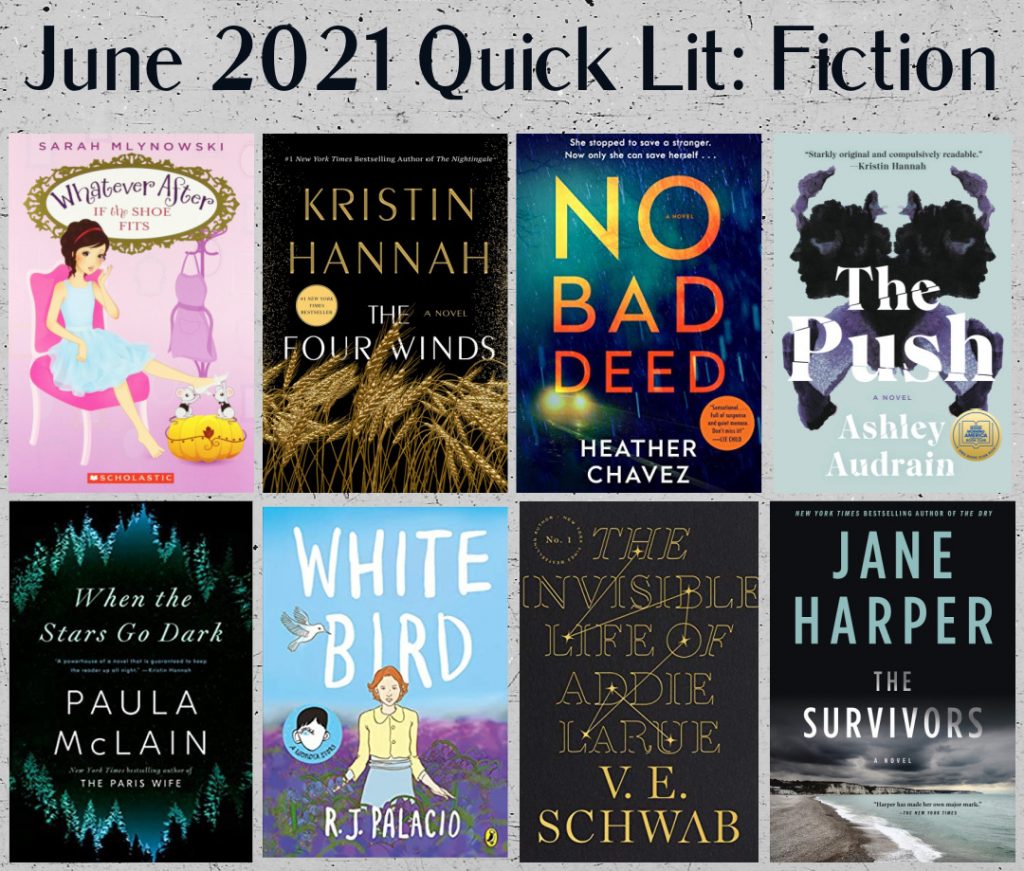
The Push, by Ashley Audrain: Blythe came from many generations of women for whom motherhood did not come easily, and Blythe is desperate to write a different story with her own daughter, hoping to become the doting mother she never had. But Blythe and her daughter Violet get off to a difficult start; Blythe is certain something is not quite right with Violet, but Blythe’s husband Fox dismisses her concerns and dotes on their child, leading Blythe to second-guess her own perceptions. When Blythe gives birth to Sam, she instantly discovers the connection she’d always longed for with a child. She begins to grow in her confidence as a mother—but then tragedy strikes, and nothing in their family will ever be the same. The Push is Blythe’s side of the story, written as a letter to her ex-husband in defense of her own actions and an indictment of (or is it an apology to?) the daughter who never felt quite like hers.
This book has been everywhere lately, and it seems to have a polarizing effect with readers loving or hating it. I can see why it has gotten so much attention: though not technically a thriller, it’s suspenseful and compulsively readable. I finished it in two sittings (I can’t remember another book I’ve gotten through so quickly), utterly mesmerized by Audrain’s sparse narration, creative use of literary motifs, and recounting of the motherhood experience (from the sublime to the downright shameful). Audrain puts to words the thoughts and experiences most young mothers have had and are rarely brave enough or self-aware enough to utter. I appreciated the keen (yet unsettling) observations of generational trauma and neglect, the portrayal of differing approaches to parenthood (including some glimmers of hope and redemption scattered throughout), and characters who were sympathetic, albeit difficult to cheer on.
Despite the compulsive premise and literary merit, I’m still not quite sure how I feel about the book. It is dark, violent, occasionally grotesque, and deeply dysfunctional, and though it isn’t outright horror, it is one of the most terrifying stories I’ve read in a very long time (sensitive readers take note: this book contains just about every possible trigger out there). Still, I’m glad that I read it (even if it gave me nightmares) and I liked the slightly open ending. But now I’m dying for somebody to discuss it with.
My Rating: 3.5 Stars (Rounded down to 3 stars on Goodreads.)
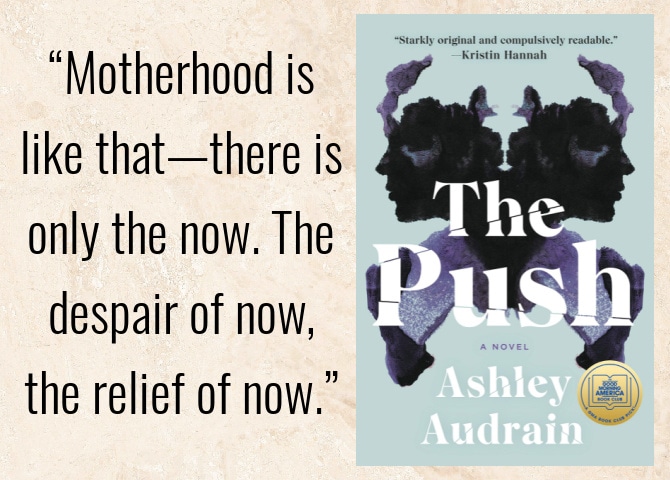
No Bad Deed, by Heather Chavez: Veterinarian Cassie Larkin is driving home from work late one Halloween Eve when she comes across a man and woman fighting on the side of the road. When Cassie steps in to rescue the woman in peril, the man issues a threat: “Let her die, and I’ll let you live.” While Cassie is assisting the woman, the attacker takes off with Cassie’s van and its contents, including her purse, wallet, and information about her home and her family. Cassie returns home safely, but the next day her husband disappears while out trick-or-treating with their young daughter. It appears that he might have left of his own volition, but Cassie can’t be sure. Why would her devoted husband leave her and their two children with no explanation? Could his disappearance be related to her harrowing encounter the previous night, and if so, how are they connected? Cassie is determined to bring back her husband but soon finds herself trapped in a deadly pursuit that has left Cassie and everyone she loves in jeopardy.
When I heard Meredith of the Currently Reading podcast discuss this book on a recent show, the setup had me racing to my library to borrow a copy, and I plowed through the book, eager to see the complete story unfold. Sadly, I was left disappointed. With each passing chapter, the story became less believable and more convoluted, with characters acting irrationally and nonsensically, and ridiculous storylines being layered on top of one another. I liked the character of Cassie and what little backstory we learn about her had me intrigued, but it grew increasingly hard to feel invested in her plight when her circumstances became more and more outlandish. I was hoping for a smart mystery, but the writing style is uninspired and the themes of justice, loyalty, and redemption are too loosely interpreted to make much of an impression. The story has an exciting conclusion, but with so many other great thrillers vying for readers’ attention, I can’t say I would recommend this one.
My Rating: 2.5 Stars (Rounded up to 3 stars on Goodreads.)
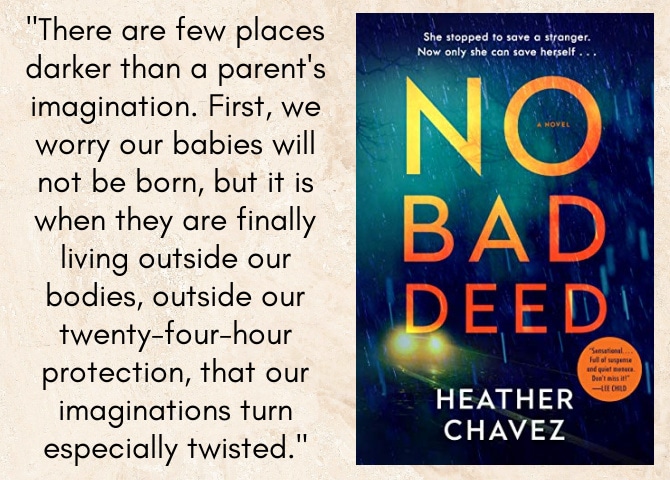
The Four Winds, by Kristin Hannah: Elsa Martinelli hasn’t had an easy life, but after a lonely childhood and challenging foray into marriage and motherhood, she has found fulfillment and purpose in serving her family as only she can during the Great Depression. But a series of tragedies leaves Elsa with a difficult choice: stay in Texas fighting for a homestead she loves, or flee the Dust Bowl for a healthier and hopefully happier life in California. In this story of survival, sacrifice, and ultimate courage, Elsa proves to her children and to herself that she will do anything to keep her family together.
This is a heart-wrenching story filled with hardship, but unlike The Great Alone, this doesn’t read quite like gratuitous tragedy porn, as I know the circumstances faced by Elsa were far too common during the Great Depression. I learned a great deal from this book about the devastation of homelessness, starvation, and poverty that many faced during the Dust Bowl, as well as the unfortunate prejudice many experienced as a result of their circumstances.
While most of the minor characters are fairly bland, I was intrigued and inspired by Elsa, who blossoms from a meek young girl afraid to dream, act, or think for herself into a bold, confident, industrious woman with a fierce love for her children and relentless commitment to survival. The dynamics between Elsa and her mother, her mother-in-law, her friends, and her daughter are each believable and offer powerful portraits of the nuances within female relationships.
This is an inspiring and surprisingly hopeful story that I will not soon forget. However, I did not love the heavy-handed communist propaganda, and I hated the ending. I also felt the story could have been told in about half the length.
Julia Whelan’s audio narration is fantastic and I especially loved the interview at the end of the audiobook with both Kristin Hannah and Julia Whelan. If you’re an audiobook reader, this is definitely one to enjoy on audio.
My Rating: 3 Stars.
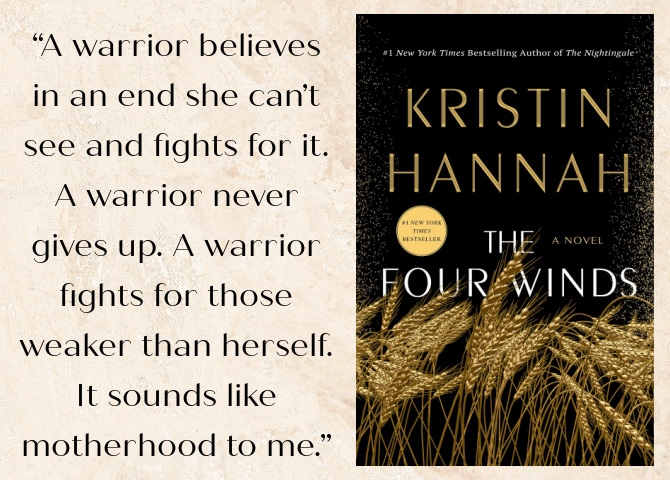
The Survivors, by Jane Harper: Twelve years ago, Kieran Elliot’s life changed in an instant when a storm took the life of his brother Finn, leaving Kieran with the burden of knowing he’d played a role in Finn’s demise. That day was the undoing for many families in the beachside Tasmanian town of Evelyn Bay, and though most of the locals have moved on, Kieran and his friends and family still carry wounds that have never fully healed.
More than a decade later, Kieran has returned to Evelyn Bay, this time with his infant daughter Audrey and partner Mia in tow. Just days after their arrival, a local girl is found murdered, and the death leads to the unearthing of events surrounding the past tragedy. As Kieren begins to piece together the events of the past, it becomes clear that there is more to the story than he’d realized and that his brother’s death—and the disappearance of a teenage girl on the same day—could be connected to the current murder.
Jane Harper is an auto-read author for me, and I’ve been chomping at the bit to read her latest mystery. Though this was not nearly as good as her previous book (The Lost Man is one of the best mysteries I’ve read in the past few years), this is a solid read with a slow but engaging mystery, a decent number of plot twists, hefty characters, and complicated ethical dilemmas that are worked through intelligently and thoughtfully within the story. And though the ending could have been stronger and some of the characters’ decisions weren’t entirely believable, I was left (mostly) satisfied with the conclusion.
Jane Harper’s strength as an author lies in her knack for creating atmospheric settings, and her depiction of the Australian beach is brilliant: the seaside town comes to life through her vivid portraits of eerie caves, torrential seas, and quirky island culture. The story is woven into this evocative setting, resulting in a book that had me itching to visit Australia—but also slightly terrified of what manner of murder I might find there!
My Rating: 4 Stars.
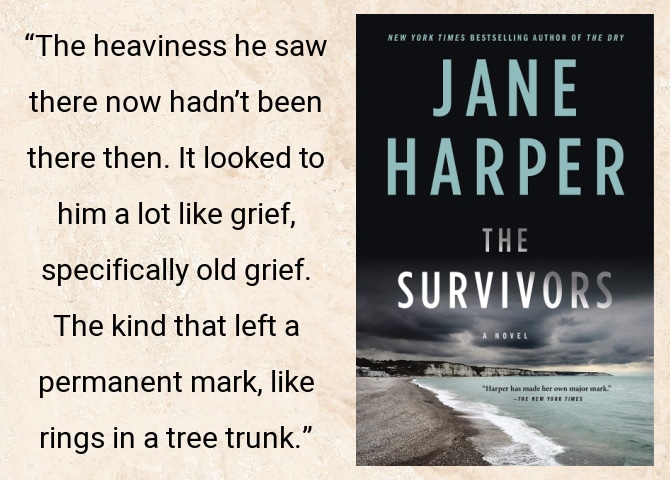
When the Stars Go Dark, by Paula McLain: Anna Hart is a missing persons detective whose own life takes a horrific turn, leading her back to the last place she truly felt at home. It has been decades since Anna said goodbye to the Northern California town of Mendocino where she once lived with her beloved foster parents, and upon her return she is greeted by a community in chaos. Local teenager Cameron Curtis, the daughter of a retired movie star, has gone missing. The case is reminiscent of an unresolved murder that took place in Mendocino decades earlier, and Anna soon learns that Cameron is just one of a series of recent missing teens. Anna quickly finds herself obsessed with finding their captor. But the investigation brings back a flood of painful memories, and her pursuit becomes about more than just finding justice for the girls who are missing, but about repairing the trauma from her childhood, coming to terms with her own victimhood and the mistakes bourn of a wounded soul.
This novel fits the genre of “literary detective fiction” that I’ve grown to love, telling a propulsive story through stellar prose and an interweaving of layered characters. The subject matter is heavy and feels deeply personal—I was not surprised to read the Author’s Note at the end, in which McLain admits to the autobiographical aspects of the story (specifically her years in foster care and her sexual abuse). The book is well-researched, adding color and emotion to several real-life cases from the early 1990s that serve as a backdrop for the fictional story at the forefront, and drawing from the science behind trauma, abuse, and criminal behavior. Be aware that this is laden with triggers, though the events are not gratuitous or overly graphic.
Parts of the book didn’t work for me: there is a lot going on, with multiple characters and storylines wedged inexplicably into an otherwise strong narrative arc. There are some gaps in the plot, with a few plot threads left unfinished and others that fit together too conveniently and rather unbelievably. As a whole, though, this is a powerful and memorable read. I especially loved the flawed but redemptive character of Anna and would love to see her story fleshed out into a series.
My Rating: 4 Stars.
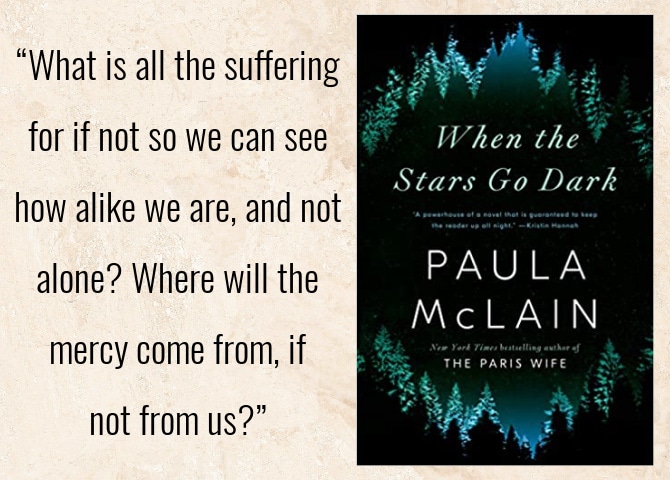
If the Shoe Fits, by Sarah Mlynowski: In this second installation of the Whatever After series (I reviewed Book 1 last month), siblings Abby and Jonah have once again been swept into their basement’s magic mirror and landed in a fairy tale. This time, they encounter Cinderella as she is meeting her prince at the ball. But the story isn’t working out the way it should: Cinderella breaks her foot so the glass slipper no longer fits; her fairy godmother seems determined to teach Cinderella a few hard-earned lessons; and worst of all, Cinderella isn’t very nice!
This story veers pretty far from the original fairy tale, but I loved the changes and themes of self sufficiency, ingenuity, friendship, and the real meaning of true love. This series is such a delight, and I’m having to refrain myself from plowing through the whole series at once.
My Rating: 4 Stars.
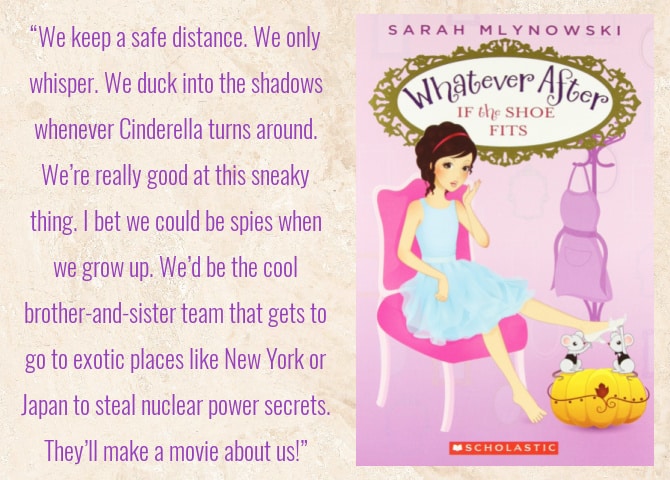
White Bird, by R.J. Palacio: In this graphic novel spinoff of Wonder (one of my very favorite middle-grade novels), a grandmother shares a heartbreaking story from her childhood as a Jewish girl in Nazi-occupied France during World War II. Sara narrowly escaped capture when the Nazis appeared at her school to collect all of the Jewish students. With her family and many friends gone, Sara relies on help from Julian, a classmate she had once shunned, whose family hides Sara in their barn. Sara and Julian form a close friendship and Sara regrets her earlier dismissal and unkind treatment of this boy who has shown nothing but kindness, courage, and loyalty in the face of danger and hatred.
This is a powerful story, poignantly conveyed through lovely illustrations, touching metaphors, and a memorable set of characters. Though fictional, the story is believable and utterly tear-jerking, but it succeeds in sharing its messages of hope, bravery, and friendship in a format that is ideal for the middle-grade audience but easy to appreciate as an adult as well. It’s difficult to create a book that depicts the atrocities of this time period in an age-appropriate format, and White Bird succeeds in both acknowledging the horrors of the occupation without being too gratuitous, graphic, or demoralizing.
I was disappointed by the ending’s modern-day tie-ins equating the Nazi regime with Trump’s border policies. The historical story stands well on its own without needing to make such overt political commentary, and the inclusion of these messages in the book’s final pages detracts from the timelessness of the primary story’s themes. I also didn’t love the subtle messaging about God and faith, with characters putting their trust in human kindness over divine provision. These factors didn’t ruin the book for me, but they did keep it from being what would have been a 5-star read.
My Rating: 4 Stars.
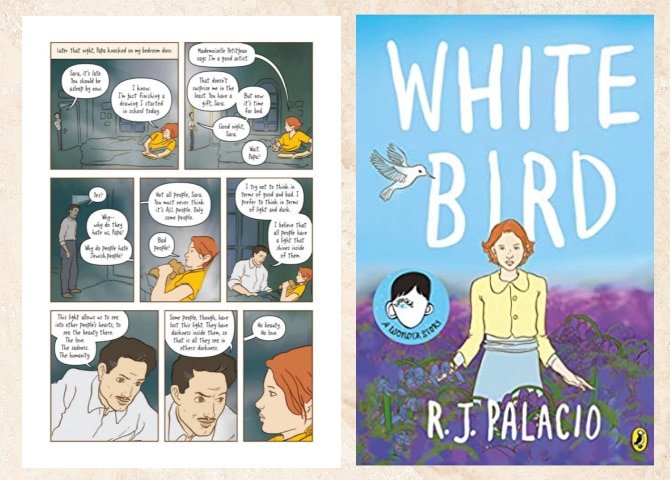
The Invisible Life of Addie LaRue, by V.E. Schwab: This is a book that likely needs no introduction, as it seems I’m the last to be reading it, but for those who might also be a little late to the Addie party, her’s our setup: Addie LaRue is a young woman living in 18th-century France and, desperate to escape an unwanted marriage, she makes a deal with the devil. Addie is granted immortality, but with a catch: she will live out the rest of eternity without every being remembered by those around her. Unable to say her own name, to leave any impression of her existence, or even lay claim to her own property or possessions, Addie wanders the world for 300 lonely years.
Everything changes for Addie in 2014 when she meets a bookseller named Henry who remembers her name. As she gets to know this seemingly ordinary man—and he, in turn, becomes the first person in centuries to get to know her—we come to see that these two individuals have more in common than it would seem. What unfolds next is a character-driven meditation on the nature of identity and purpose, the value of a name and a legacy and the impact we may or may not choose to have on those around us, the nature of relationship, and the meaning of love.
This is a beautiful, insightful, and thought-provoking novel with a fantastic premise and remarkable characters. It’s a slow start and took me a while to fully capture my attention, but the last half flew by for me. I was particularly intrigued by Henry and his peculiar plight. (No spoilers, but the parallels between his fate and Addie’s are fascinating.) This book has a dark premise but isn’t overtly heavy or sinister.
I listened to this one on audio and regret that. The narration by Julia Whelan is great (she’s definitely my favorite audiobook narrator), but the jumping timelines were difficult to track on audio and I am sure I would have appreciated the story much more in a different reading format.
Imaginative, literary, and structurally creative, this is perfect for fans of ambitious fiction who enjoy a mind-bending story. Heads up for more steamy scenes than I’d expected .
My Rating: 4 Stars.
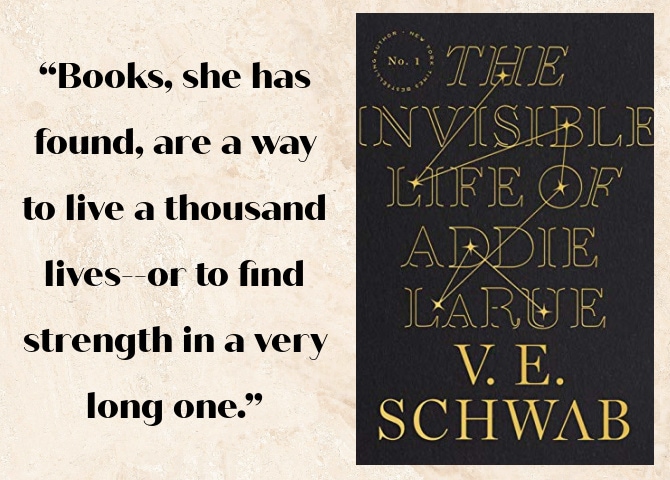
In case you missed last week’s book reviews, you can find them right here:
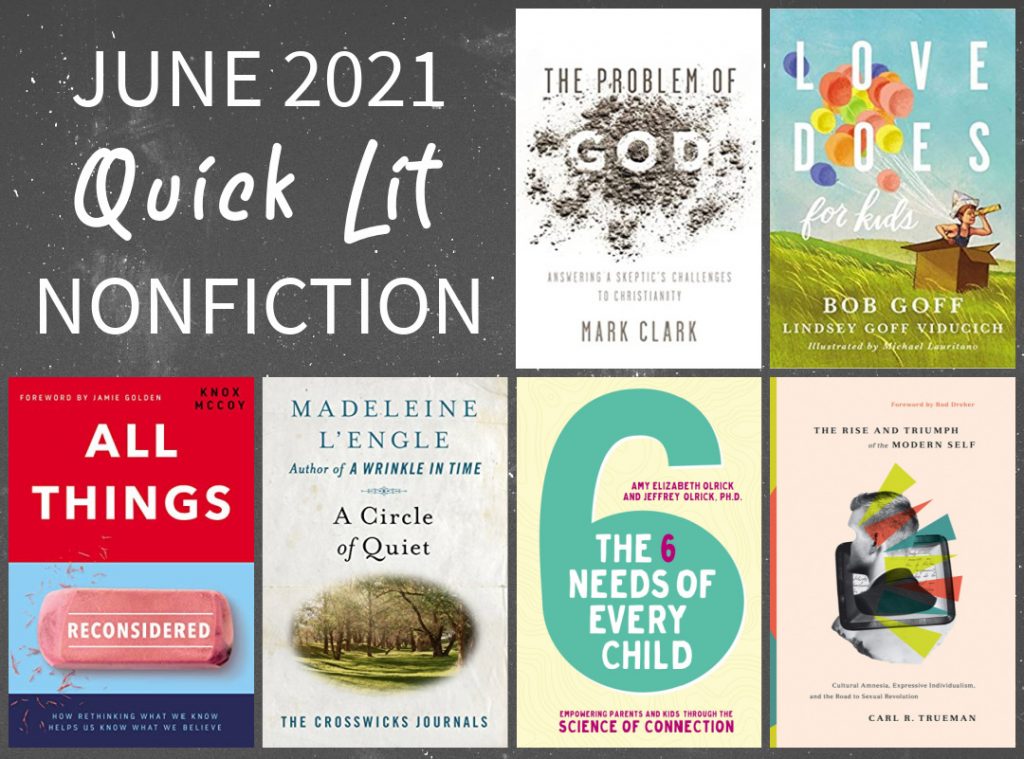
I really enjoyed White Bird, but I had forgotten all about the two parts you mentioned not being a fan of… they were they same two things I wasn’t crazy about. I don’t like political agenda in my books unless I am actively seeking that in a particular book.
Here are my recent reads, if interested: https://elle-alice.blogspot.com/2021/06/may-book-reviews.html
Yes, I am fine with “making a statement” if I know to expect that in a book. I’m not a fan of agendas sneaking into stories.
I always look forward to seeing your reviews. I have The Survivors and The Four Winds on my TBR shelf. Looking forward to The Survivors…and to watching The Dry. My book club has recently read The Nightingale and The Great Alone, so I’m on a break from Kristin Hannah for a bit.
I’m so glad you find my reviews helpful! I hope you enjoy The Survivors. A Kristin Hannah break sounds like a good plan, her recent books are pretty intense—best consumed sparingly!
THANK YOU KENDRA, once again, for your reviews! I always like to wait for your review before I make my decisions! I think, based on your reviews, that I will try When the Stars Go Dark, as well as The Push. I was glad to hear about The Four Winds, because I’ve read two of Kristin Hannah’s backlist books and found them both amateurish, trite Chick-Lit. I keep seeing The Nightingale and The Great Alone raved about and I wondered if they were any different from the two I’ve already read. I think I’ll just stick to The Grapes of Wrath on this subject! That was truly a great book if you haven’t read it, but you probably aren’t ready for more of the Dust Bowl right now.
And, sorry, didn’t agree with you on The Survivors—I loved The Dry and Force of Nature, but this one just wasn’t in the present, it was all in the past and the seaside town seems only half-lit just like the cover, it was so foreboding….I didn’t care much about the murder or find it interesting, nor was I interested in the main character. Not memorable. BUT I am interested in your endorsement of The Lost Man, I will get that one next!
I hope you enjoy (maybe enjoy isn’t the right word…) When the Stars Go Dark and The Push. I’d love to hear what you think when you’ve read them.
Kristin Hannah’s newer books (the ones you mentioned) are VERY different from her earlier books. I like some of her chick lit and not others, and I liked The Nightingale but not The Great Alone, so she is very much hit or miss. I read The Grapes of Wrath in high school and liked it now, I’m sure it would read differently twenty years later.
I’m sorry you didn’t care for The Survivors. I thought The Lost Man was amazing, but it is a VERY slow burn. It was her best-written book in my opinion, though. I just saw that The Dry was made into a movie, have you seen it? It looks fairly true to the novel.
Oh, thank you, that is very good to know about Kristin Hannah, so then maybe I will read The Nightingale. And I’ll still go for The Lost Man, slow burn doesn’t put me off necessarily. I DID just see that The Dry was made into a movie, but I haven’t seen it yet. I will, though! Thank you for replying.